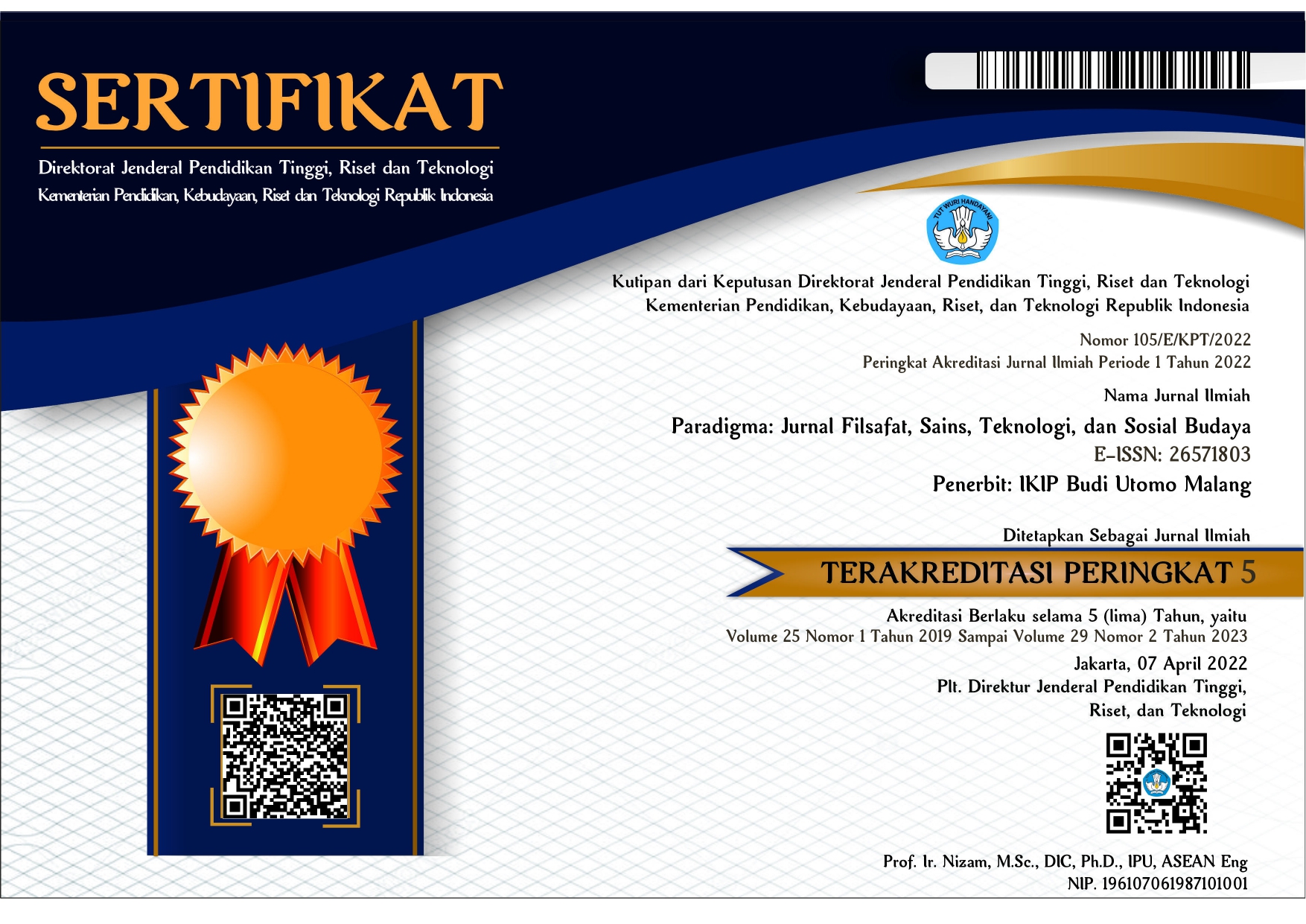Problem Etis Proyek Food Estate di Indonesia Ditinjau dari Etika Immanuel Kant
Abstract
This article focuses on the ethical problem posed in food estate projects in Indonesia. When government poltical policies often carry a utilitarian ethical view, which holds that an action is said to be a good action if its bring utilities and happiness to as many people as possible. However, this view has fatal weakness, namely that it does not guarantee justice and the fulfillment of human rights. This is what will be analyzed in this article using Immanuel Kant’s ethical thinking. This method used in this article is qualitative, with a literature study approach. This article reveals the findings that in Kant’s ethics a person cannot be sacrificed for whatever reason, be it the food security of many people or the profits of a few political elites. Therefore every person is valuable in himself, he should never be used as just a tool or means. Rather, as an end in itself, it is in accordance with the second principle of the categorical imperative.








.jpg)



